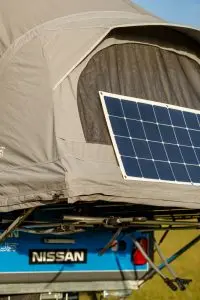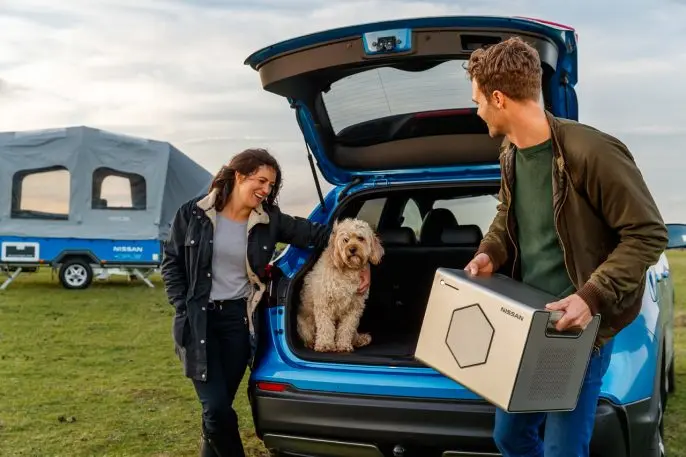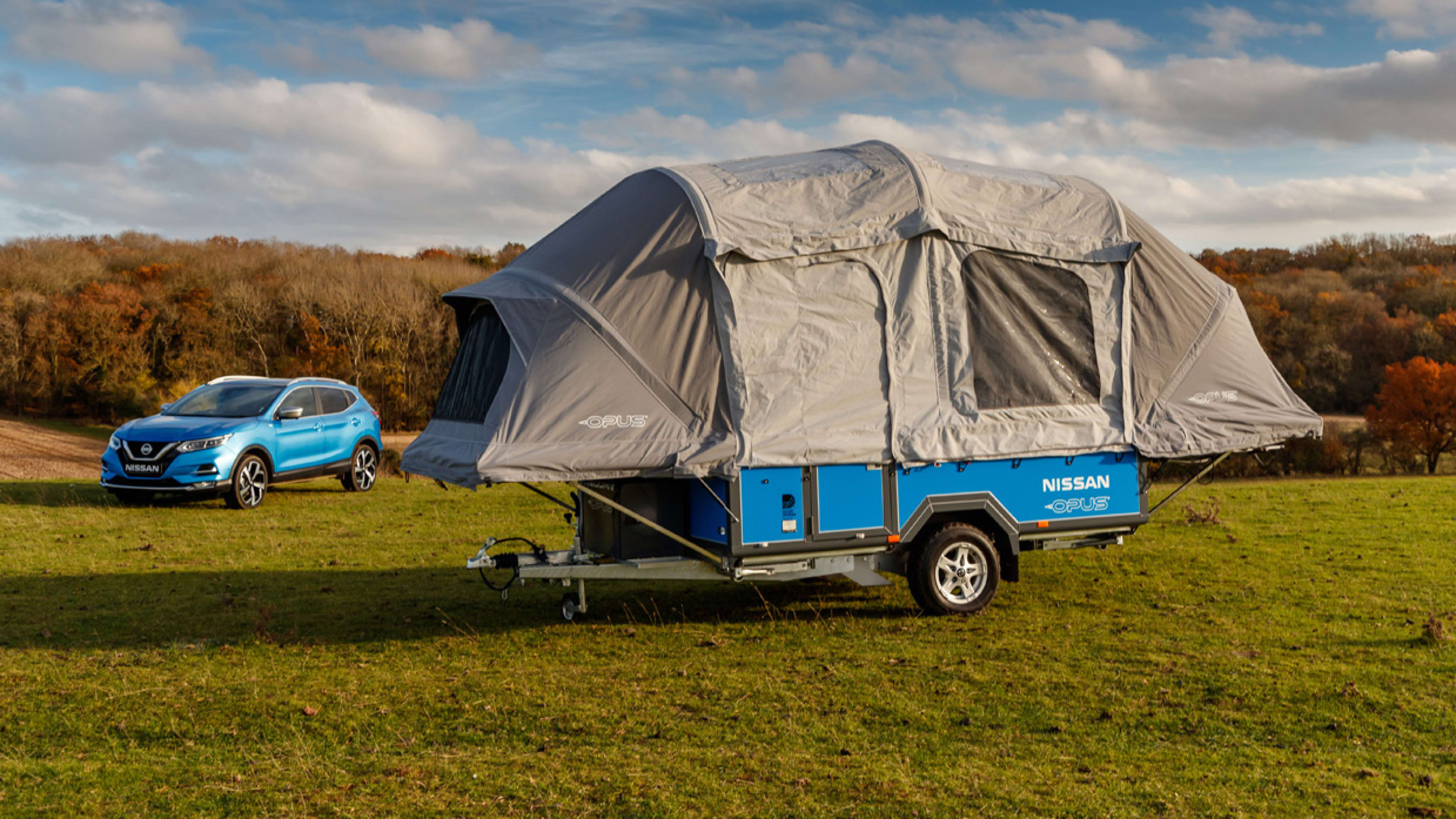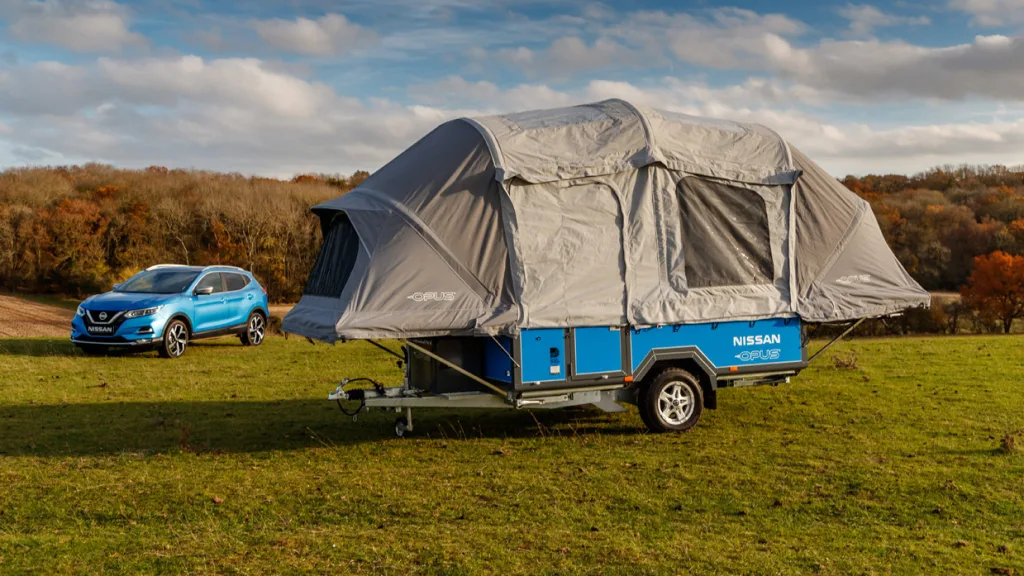The practice of living your life on the road without a home–or #vanlife–introduces plenty of logistical challenges, including usually having to depend on a gasoline-powered generator. Nissan Energy, a new company that the automaker spun out last year, thinks it has a solution.
Nissan Energy’s goal is to find new ways to commercialize old batteries from its Nissan Leaf electric car. Because of battery performance degradation, electric vehicles need their batteries replaced after a few years. Manufacturers have been investigating what to do with these expensive and toxic pieces of equipment, and Nissan Energy is planning to put them to use in less-demanding tasks–like the Nissan x Opus camper.
The camper, which was presented last week at the U.K.’s Caravan, Camping & Motorhome Show, is designed to be an electric sidekick for van life adventures. It has an integrated electrical storage unit that can power your life for seven days without a recharge, using recycled batteries from old Nissan Leaf cars.
The system is made up of three components.

The second component is a 400W solar panel. According to Nissan Energy, it can recharge the battery in two to four hours, depending on how clear the sky is. Unless you’re camping in the middle of winter in the Arctic Circle, you are good to go.

And finally there’s the camper itself, called the Nissan x Opus. This pop-up trailer inflates within 90 seconds with an integrated air compressor to provide you with an on-the-road habitat that can comfortably fit six people for sleeping. The ROAM unit sits on the front part of the camper, powering the 12V and 230V outlets distributed through the camper’s interior.
While the Opus camper line starts at about $20,000, there is no price yet for the ROAM battery unit. If you want one, you will have to wait until later this year–and, sadly, order it from Europe. There’s no date yet for a launch in America, where van life is on the rise.
Recognize your brand’s excellence by applying to this year’s Brands That Matter Awards before the early-rate deadline, May 3.








